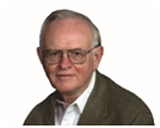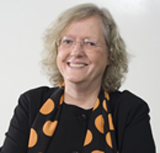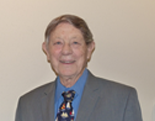IEEE Life Members Committee E-Newsletter
E-Newsletter, Vol. 2, September 2020
Welcoming Remarks
T. Scott Atkinson, Chair, IEEE Life Member Committee

I am pleased to present to IEEE Life Members (LMs) our second electronic newsletter this year. As a point of information, our next newsletter will be our normal December print issue. We hope that you are pleased with the newsletters we have published for your benefit this year. So far, we completed the distribution of the December 2019 newsletter, a March e-Newsletter and a June print newsletter.
As we all know, the COVID-19 pandemic has turned our world upside down regarding our 2020 plans. However, our Life Members Committee (LMC) continues to function, virtually. In this newsletter, Editor Charles Turner, past LMC chair, has included reports on how LM Affinity Groups (LMAGs) have been coping with the restrictions on travel and events imposed by the lockdown that we hope you will find interesting.
First, I want to give you some of my thoughts about the status of our LMC activities. The following comprise our main activities:
Overall, our focus continues to be:
(1) establishing new LMAGs
(2) increasing the LMAG activities for all LMs and other long-serving members
(3) launching a new campaign toward achieving a US$1 million increase in our LMF to continue to provide our long-term philanthropic goals for IEEE.
We also need to find out whether the LMC newsletters are achieving the goal of improving the communication between the LMC and LMs, to ensure that they are better informed. If you are not satisfied with the service you are receiving please feel free to contact your local LMAG chair, regional coordinator, or me at s.atkinson@ieee.org.
Editor’s note
The e-Newsletter is emailed to all recipients of the printed edition of the IEEE Life Members Newsletter, published in June and December each year. Those LMs that have elected not to receive email from IEEE can view it (and past issues) online at the MGA website: www.ieee.org/communities/life-members/newsletter.html.
The LMC strives to improve its communications with LMs using all available means. The success of this campaign depends, in part, on how effectively the 333 IEEE Sections serve their LMs, by providing them with the news and information that is an essential requirement of any member-led organization. The article about Section/LMAG websites highlights the need for Section volunteer leaders to make sure that their websites are fit for this purpose.
Awards News

Leah H. Jamieson, IEEE Life Fellow, was awarded the 2020 IEEE James H. Mulligan, Jr. Education Medal, sponsored by MathWorks, Pearson, and the IEEE LMF, for contributions to the promotion, innovation, and inclusivity of engineering education. Jamieson is the Ransburg Professor of Electrical and Computer Engineering at Purdue University. She was IEEE President in 2007 and cofounded the Engineering Projects in Community Service (EPICS) program at Purdue University as an IEEE Foundation program. She served as the president of the IEEE Foundation in 2013.

Ernest A. Franke, Ph.D., P.E, IEEE Senior Life Member of the Lone Star Section has been named a recipient of the 2020 Javelina Engineering Hall of Fame Award by the Frank H. Dotterweich College of Engineering at Texas A&M University-Kingsville. The Javelina Engineering Hall of Fame recognizes graduates of the Frank H. Dotterweich College of Engineering who have made a significant impact in the field of engineering. The Hall of Fame designation is presented to alumni who have demonstrated a longtime and successful commitment to their careers and communities and who have brought special honor to the College of Engineering because of their accomplishments. More details of Franke’s achievements will be included in the December issue of the IEEE Life Members Newsletter.
LMAG Activities
The LMC invites reports from LMAGs to show what can be achieved to serve the interests of LMs. Because of space limitations, only a selection can be published in each edition of our newsletters. In this edition, some examples are given of what has been achieved in spite of the restrictions imposed on travel, social events, conferences, and meetings by COVID-19. Reports from a selection of LMAGs that have managed to carry out their planned programs of activities by using online platforms, such as Zoom, are presented here.
Region 5
David Bondurant, Pikes Peak Section LMAG Chair reports that Sections in Region 5 shared a total of 13 webinars with the other LMAGs in the Region this summer (Galveston Bay, Pikes Peak, Central Texas, Houston, and Kansas City). Topics ranged from "Who invented the integrated circuit?" to "Trends in wearable technology."
Garrett Polhamus, chair of the Lone Star Section LMAG, reports that group activity has been continued via a regular schedule of Zoom-based meetings. This includes the program of support for the San Antonio Museum of Science and Technology. Engraved tumblers were presented to recognize the LM volunteers who maintain the exhibits there.
Region 8
The Lebanon Section LMAG continues to remain active in spite of the severe difficulties being experienced by all professionals in that afflicted country. Lebanon Section LMAG Chair Prof. Usamah Farrukh sent a thought-provoking report on the progress achieved so far in an IEEE Foundation grant-supported project (SET–Souq eTaqa Energy Info Market). This involved collaboration between the American University of Beirut and the Lebanon State Department of Electricity. Additional details will be published in the December IEEE Life Members Newsletter and are also available from Prof. Farrukh (usamah2000@yahoo.com).
France Section LMAG Chair Prof. Victor Fouad Hanna organized a virtual meeting webinar that was accessed by members from Sections in Region 8. The lecture was delivered in French, complemented with slides in English. It is hoped that this will be the first of many more transnational presentations using webinars. Working across international borders presents some challenges, but this example demonstrated that it is possible to overcome them.
Reports of LMAG activities of all kinds help to raise awareness of how these groups are serving their members. They will be published in either the electronic or the printed editions of the newsletter as space permits.
Region 9

The chair of the Argentina Section LMAG, Luis Remez (l.remez@ieee.org), reports that a series of six virtual meetings were held in collaboration with the IEEE Student Activities Committee to replace the planned face-to-face IGNITE 2020 training program for undergraduate and graduate students. IGNITE (Interactive Group for New Initiatives and Training for Excellence) aims to bring together undergraduate and graduate students for training for future volunteer roles. Google Meet was the teleconferencing tool due to its easy set up and use for both organizers and participants. A couple of interactive participatory apps, Kahoot! (https://kahoot.it/) and Miro (https://miro.com/), were also used.
In the six sessions of up to 3 h in length, a total of 180 members participated, some from other Sections in the Region. The feedback received was very positive and useful experience was gained for organizing future virtual events.
Financial Support for LM Activities
The LMC is responsible for allocating funds for activities organized by LMAGs. This is in addition to the annual rebates paid to the Sections from IEEE Member and Geographic Activities (US$4 per LM and US$200 per LMAG). Every LMAG can apply for a grant from the LMC of up to a maximum of US$2,000 each year to support special events, meetings, and projects. The grants are specifically restricted to activities that benefit LMs in some way and must be approved by the regional coordinator and the LMC chair.
Many LMAGs do not apply for the LMC grants, partly because they have other sources of income or because they are not aware of the availability of these funds. In normal conditions, absent the COVID-19 problem, LMAGs use the funds to invite speakers (such as Distinguished Lecturers) to pay for the costs of room and equipment hire, refreshments, and volunteer expenses. In 2020, to date, there have been very few requests for funds. If you are planning an event that needs financial support, your application should be sent to the LMC before the end of the year to take advantage of the 2020 allocation.
Webinars: New Opportunities for LMAGs and LMs
One of the outcomes of the lockdowns that have become a common occurrence in virtually all countries afflicted by COVID-19 has been the huge increase in the use of the Internet, mostly from home. For many groups and individuals, online working has become a new way of life, but not everyone is comfortable with using the technology. Help is available from the LMC for any LMs experiencing difficulties using online platforms for meetings and lectures.
An unexpected benefit to IEEE and its members is that personal interaction between members, albeit online, has never been so easy. Regions, Sections, Chapters, etc., have always been challenged with the problem of providing services to their members, typically distributed over hundreds, or perhaps thousands, of miles. Now, the near-universal acceptance of online communications technology allows personal chats, committee meetings, etc. to be available at low or even zero cost. Technical talks and presentations that formerly were based in lecture halls and conference centers, an hour or more away for each member of the audience and the speakers, are now being delivered remotely by video links on one of several popular platforms. This development has been particularly welcomed by IEEE Technical Societies, but the rapid expansion of the use of the webinar has been embraced with great enthusiasm by all IEEE groups around the world. Moreover, the "export" of local events and meetings internationally has become almost routine. The benefit to elderly LMs has been especially appreciated: Many are less mobile and prefer not to have to travel to IEEE events held in the evening. The technology is relatively easy for LMAGs to use, especially if IEEE volunteers or Student Members experienced with webinar delivery are available to assist. Arranging for webinars to be viewed in other Regions and countries is easily done via the network of over 100 LMAGs.
Renewing Your IEEE Life Membership
This is the time of year when membership renewal notices are sent to all members. Even though LMs do not pay dues, it is still important to confirm that you wish to remain a member so that you will continue to receive the member services and benefits accorded to all IEEE members and remain on the IEEE membership database. The renewal notice also includes check-off boxes for making donations to the LMF, IEEE History Center, IEEE Foundation, and other funds.
Milestones and Other Commemorations
The COVID-19 pandemic has caused the postponement of a number of IEEE Milestone dedication ceremonies planned for this year. Given the concerns about the continuing growth in the spread of the virus, it is unlikely that any will take place in the remaining months of 2020. However, this pause provides an opportunity to reflect on possible alternative ways of recognizing important steps in the history of electrotechnology. The IEEE Milestone approval procedures are lengthy and very time-consuming, requiring considerable volunteer effort. The costs of the plaque and dedication ceremony are also expensive, typically several thousand dollars for each IEEE Milestone. Another complication arises from the loss of many buildings and sites where the work that begat the event being celebrated took place. These factors have undoubtedly had an impact on the number of IEEE Milestones installed around the world. Only 200 or so have been dedicated since the first was approved in 1984. This begs the question: Is it feasible to imagine the creation of "virtual IEEE Milestones," with no physical entities involved (no plaque, no building, no site)? The best suggestions will be published in the next edition of the newsletter.
News From the IEEE Foundation
The LMC works closely with the IEEE Foundation, sharing a common interest in exploring opportunities for supporting humanitarian projects. Details of the most recent work of the IEEE Foundation can be found in the July 2020 edition of the Focus newsletter (www.ieeefoundation.ieee.org).
The 2020 edition highlights current projects, such as the IEEE Smart Village project in Nigeria, which provides solar power to a COVID-19 Isolation Center. It also features the work of the EPICS in IEEE team on the Engineering Spotlight webcast. If you are not aware of the important work being done using funds donated by LMs and others, please visit the IEEE Foundation website to learn more. Even better, team up with your colleagues to consider applying for a project grant.
The IEEE LMF
The LMF is jointly managed by the (charitable) IEEE Foundation and the LMC. It comprises donations from members, supplemented by income from interest and dividend distributions from the IEEE Foundation’s investments. Essentially, the LMF is the main source of income that enables the LMC to operate on behalf of all LMs. These funds also support special projects as well as the routine activities of the 103 LMAGs. In recent years, the amounts donated by members has fallen significantly. The LMC is committed to restoring the real value of the fund balance by renewed fundraising campaigns, in two major ways.
First, the LMC is asking every LM to donate each year at the time of renewal. There are approximately 35,000 LMs, donating, on average, about US$10 per year, equivalent to just a small fraction of the annual IEEE dues that are completely waived for LMs. Raising that average donation to US$20, for example, would the achieve the LMC’s goal in a single year. The link for making donations at any time to the LMF is https://give/ieeefoundation.org/lifemembers.
Secondly, there is the IEEE Heritage Circle initiative, which is the major donor program of the IEEE Foundation. The LMC is recommending that LMs willing to donate more generously should do so at the Tesla level of giving, which asks donors to pledge US$10K over a period of 10 years (US$1,000 per year). The LMC aims to recruit 100 new donors each year who are willing to join the IEEE Heritage Circle, beginning in 2020. More information about the IEEE Heritage Circle can be found at www.ieeefoundation.org/donors/heritage-circle.
Section/LMAG Websites: How Well Does Yours Rate?
LMs outside the circle of volunteers normally depend on the news of meetings and events being organized for their benefit being readily available. They might also wish to contact volunteer leaders, such as chairs, secretaries, and treasurers, among others, from time to time. The obvious channel of communication that they should, in principle, be able to access is the Section website, which should always include information of interest to LMs. But many such websites are in a state of disrepair, rarely updated, lacking key information about contact with the volunteer leaders, or even nonexistent.
If you are an LM in a Section that hasn’t yet fully realized the value of good communication with its members through its website, contact your regional coordinator, listed below. They can bring critiques about websites to the attention of the relevant Section officers and the regional director.
Life Members Committee Members
Chair T. Scott Atkinson
Vice Chair Howard Wolfman
Past Chair Charles Turner
Maxine Cohen
Jorge Monzon
John Harris
Paul Cheung
John Impagliazzo
Dennis Shapiro
Feedback
In the interests of better communication with the LM community, the LMC invites your comments and questions. We will try to include them in future editions of this e-Newsletter. One of the LMC’s objectives is to raise the profile of LMs, especially in Sections, Regions, and IEEE committees and boards. When the opportunity arises, please feel free to submit your feedback regarding member services or propose ways to improve the membership experience of LMs.
—E-Newsletter Editor: Charles Turner (c.turner@ieee.org)